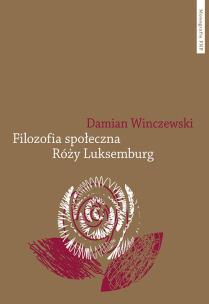- Regulamin
- Koszty dostawy
- Kontakt
- Dziś w ofercie 234 626 produktów
KSIĄŻKI
- Albumy
- Beletrystyka
- Biografie
- Dla dzieci i młodzieży
- Edukacja
- Ekonomia i biznes
- Ezoteryka
- Historia
- Informatyka
- Kalendarze
- Komiksy
- Kryminał i sensacja
- Kultura i sztuka
- Literatura faktu
- Literatura kobieca
- Literatura piękna
- Medycyna
- Nauka języków obcych
- Nauki humanistyczne
- Nauki przyrodnicze
- Nauki ścisłe
- Podręczniki
- Poradniki
- Prawo i administracja
- Przewodniki i podróże
- Psychologia
- Religia
- Sport
- Technika
- Zdrowie i uroda
ZABAWKI
- Artykuły dla niemowląt
- Bączki
- Bujaki i skoczki
- Ciągnij / pchaj
- Dla niemowlaka
- Grzechotki i gryzaki
- Karuzele i pozytywki
- Maty i centra zabaw
- Projektory i lampki
- Sortery i piramidki
- Zabawki
- Edukacyjne i kreatywne
- Figurki
- Klocki
- Lalki
- Pojazdy
- Pluszaki i maskotki
- Sport i rekreacja
- Zabawa w dom
- Zabawki drewniane
- Puzzle
- Do 200 elementów
- 201-500 elementów
- 501-1000 elementów
- Ponad 1000 elementów
- Puzzle 3D
ART. PAP
- Artykuły biurowe
- Artykuły piśmiennicze
- Bloczki i kartki samoprzylepne
- Dziurkacze
- Kalkulatory
- Nożyczki i nożyki
- Skoroszyty
- Teczki
- Wizytowniki
- Zszywacze
- Artykuły szkolne
- Akcesoria szkolne
- Modelowanie
- Notatniki i zeszyty
- Piórniki
- Plecaki i torby
- Pojemniki na śniadanie
- Pomoce naukowe
- Przybory matematyczne
- Przybory rysunkowe
- Upominki i gadżety
- Akcesoria do książek
- Artykuły balowe
- Breloki i zawieszki
- Drobiazgi, różności
- Kubki
- Oferta Świąteczna
- Papeteria, kartki i naklejki
- Skarpetki Many Mornings
- Upominki
GRY
MULTIMEDIA
- Audiobooki
- Beletrystyka
- Biografie i wspomnienia
- Dla dzieci i młodzieży
- Fantastyka
- Filozofia i religia
- Historia
- Literatura faktu i reportaż
- Poradniki
- Sensacja i kryminał
- Filmy DVD/BD
- Animowane
- Biograficzne
- Fantasy
- Horrory
- Komedie
- Romanse
- Science Fiction
- Sensacyjne / kino akcji
- Thrillery
- Muzyka CD
- Alternatywna
- Blues
- Dla dzieci
- Jazz
- Klasyczna
- Piosenka aktorska i poetycka
- Pop
- Rock
- Świąteczna i kolędy
- Akcesoria GSM
- Głośniki
- Kable i adaptery
- Klawiatury
- Myszy
- Słuchawki
PROMOCJE
ZDROWIE
LEGO

Filozofia społeczna Róży Luksemburg
Autor: Winczewski Damian
Wydawca:
Wydawnictwo Naukowe UMK
ISBN:
9788323145097
EAN:
9788323145097
oprawa:
Twarda z obwolutą
język:
polski
liczba stron:
504
rok wydania:
2023
(0) Sprawdź recenzje
Opis produktu
Zasady bezpieczeństwa
Po upadku większości państw deklarujących się jako socjalistyczne stojąca u ich podstaw filozofia marksistowska została instytucjonalnie potępiona i skazana na zapomnienie. Przyczyną tej negatywnej oceny były głównie kryteria pozanaukowe – polityczne i ideologiczne. Krytycy zazwyczaj unikali analizy realnej wartości jej epistemologicznej i metodologicznej podstawy, czyli dialektyki materialistycznej. Wielu zarówno radzieckich, jak i zachodnich badaczy marksizmu uważało, że prawdziwych źródeł tej dialektyki należy szukać w ekonomicznych koncepcjach Karola Marksa. Dlatego jest uzasadnione, aby racjonalna rekonstrukcja historii filozofii marksistowskiej nawiązywała także do dzieł z zakresu ekonomii jednej z najwybitniejszych kontynuatorek rozważań autora Kapitału – Róży Luksemburg (1871–1919).
Ta monografia jest wyczerpującym opracowaniem jej myśli i wkładu w rozwój dialektyki materialistycznej, która skrywa się przede wszystkim w ekonomii politycznej i opartych na niej metodologicznie pismach społeczno-politycznych. Umożliwia w ten sposób rekonstrukcję filozofii społecznej Luksemburg i oczyszczenie polskiej intelektualistki z wielu dawnych mitów na temat jej poglądów. Praca obejmuje też zestawienie filozofii Luksemburg z oryginalną myślą Marksa oraz z teorią i praktyką innych najważniejszych przedstawicieli marksizmu, takich jak Karl Kautsky czy Włodzimierz Lenin. Książka oferuje czytelnikowi możliwość zapoznania się z panoramą intelektualną „złotego wieku” tego nurtu.
After the collapse of most countries declaring themselves socialist, the underlying Marxist philosophy was institutionally condemned and consigned to oblivion. The reasons for this negative assessment were mainly non-scientific criteria - political and ideological. Critics tended to avoid analysing the real value of epistemological and methodological basis of the materialist dialectic. Many both Soviet and Western scholars of Marxism believed that the real sources of this dialectic should be sought in the economic concepts of Karl Marx. It is therefore legitimate that a rational reconstruction of the history of Marxist philosophy should also refer to the works in economics of one of the most prominent continuators of the deliberations of the author of Capital - Rosa Luxemburg (1871-1919). This monograph is an exhaustive study of her thought and contribution to the development of materialist dialectics, which hides primarily in political economy and the socio-political writings based on it methodologically. It thus makes it possible to reconstruct Luxemburg's social philosophy and to clear the Polish intellectual of many old myths about her views. The work also includes a juxtaposition of Luxemburg's philosophy with Marx's original thought and with the theory and practice of other major representatives of Marxism, such as Karl Kautsky and Vladimir Lenin. The book offers the reader an insight into the intellectual panorama of the 'golden age' of this movement.
CENA:
32,22
zł
Cena detaliczna:
38,00 zł
15%
rabatu
Najniższa cena z ostatnich 30 dni: 32,30 zł
Produkt niedostępny
Uwaga!!!
Ten produkt jest zapowiedzią. Realizacja Twojego zamówienia ulegnie przez to wydłużeniu do czasu premiery tej pozycji. Czy chcesz dodać ten produkt do koszyka?


Wybierz wariant produktu
